Books
Browse or search ANU Press' range of books or find out more about the publications' authors and co-publishers. Download the book for free or buy a print-on-demand copy.
Displaying results 11 to 20 of 790.
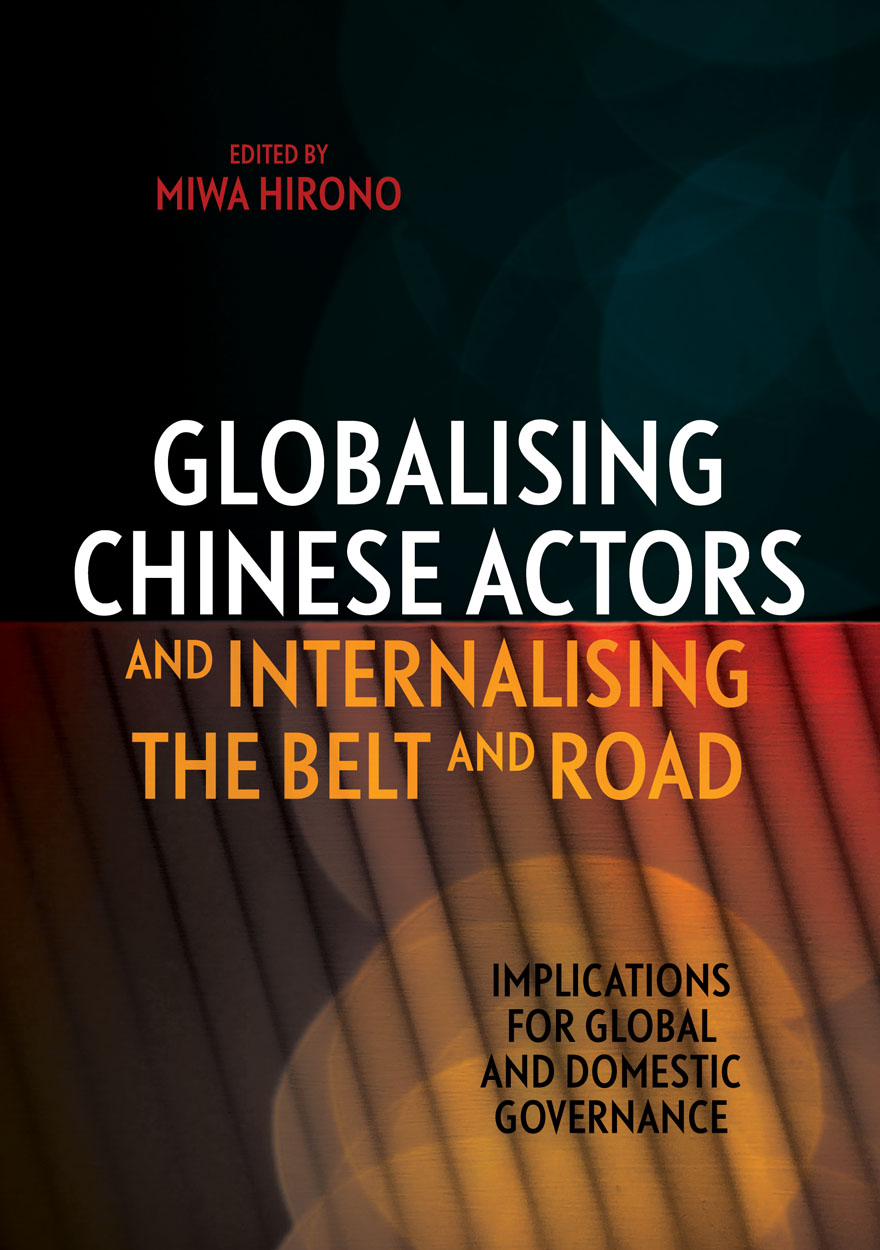
Globalising Chinese Actors and Internalising the Belt and Road »
Implications for Global and Domestic Governance
Edited by: Miwa Hirono
Publication date: June 2025
The literature on the Belt and Road Initiative (BRI) points out either its negative or positive impacts on global and domestic governance. However, such a dichotomy is too simplistic, not least because it tells us little about the complexity of change in the nature of the BRI as it is implemented. This book argues that the BRI manifests an intricate dynamic comprising two contradictory tendencies: Xi Jinping’s top-down and centralised approach to policymaking, with its focus on producing robust Chinese actors who can succeed in a competitive global economy; and a fragmented and decentralised reality made up of an expanding range of actors engaged in realising myriad BRI projects on the ground. The co-existence of these two contradictory tendencies implies that the BRI has a multidimensional impact on global and domestic governance in general, and on the role of Japan in countries where BRI projects take place. Japan matters because of its ‘in-between’ position between non-Western donors and the Development Assistance Committee of the Organisation for Economic Co-operation and Development, a position that offers a unique dimension to a frequently dichotomous discussion of the BRI. Globally, China’s promotion of the BRI has strengthened an aspect of global governance, the ‘open economy’, while at the same time fostering the Chinese nuance of a ‘planned economy’. Domestically, a Chinese-style approach to state management and investment without political conditions may set back democratisation efforts in emerging countries, but the BRI has also given rise to a renewed sense of democracy in those countries. These multidimensional impacts enable China and Japan to find an on-the-ground complementarity in their approaches to development aid in relation to future cooperation.

Military History Supremo »
Essays in Honour of David Horner AM FASSA
Edited by: Joan Beaumont, Garth Pratten
Publication date: June 2025
Professor Emeritus David Horner AM FASSA is one of Australia’s greatest military historians and its fifth official historian of war and military operations. Few who undertake research in the field can do so without consulting his prodigious, authoritative and definitive publications. Serving for 25 years in the Australian Army before joining The Australian National University, Horner is the epitome of the soldier–scholar and has played a key role in establishing military history as an academic discipline in Australia.
This volume honours Horner’s long career of service to history and the nation. Authors pay tribute to Horner’s legacy by engaging with his scholarship, applying his conclusions to new case studies and contexts, reflecting and expanding on the subjects he addressed and the methodologies he employed, and pushing the boundaries of the discipline he was instrumental in founding. The breadth of Horner’s research is demonstrated by the subjects and themes they address, including strategic planning and policy, command, multinational operations, intelligence and defence policy. Military History Supremo both underscores Horner’s contribution to Australia’s military and intelligence history and highlights the vibrancy and relevance of the field today.

Strategic Imagination »
Essays in Honour of Brendan Sargeant
Edited by: Andrew Carr
Publication date: June 2025
This book examines the concept of ‘strategic imagination’ developed by Brendan Sargeant during his distinguished career at the Australian Department of Defence and later as a scholar at the Strategic and Defence Studies Centre (SDSC), The Australian National University. His tragic passing has left this powerful idea awaiting a proper examination. This volume seeks to provide that scholarly account and carry both the concept and Brendan’s legacy forward.
The book is organised in three parts. First, former officials like Dennis Richardson join leading scholars, including Mark McKenna, Anthea Roberts and Ian Hall, to explore the unusual conjunction of strategy and imagination, demonstrating its crucial role in effective scholarship and policy.
Second, analysts from Australia and worldwide examine how strategic imagination improves strategic practice by revealing hidden possibilities, catalysing essential conversations and challenging core assumptions.
The final section offers personal reflections from Brendan’s colleagues at the SDSC, providing a fitting tribute to his life and contribution. The volume also includes selections of Brendan’s own writing on strategic imagination, ensuring his voice continues to inspire scholars and officials to explore this rich and powerful concept.
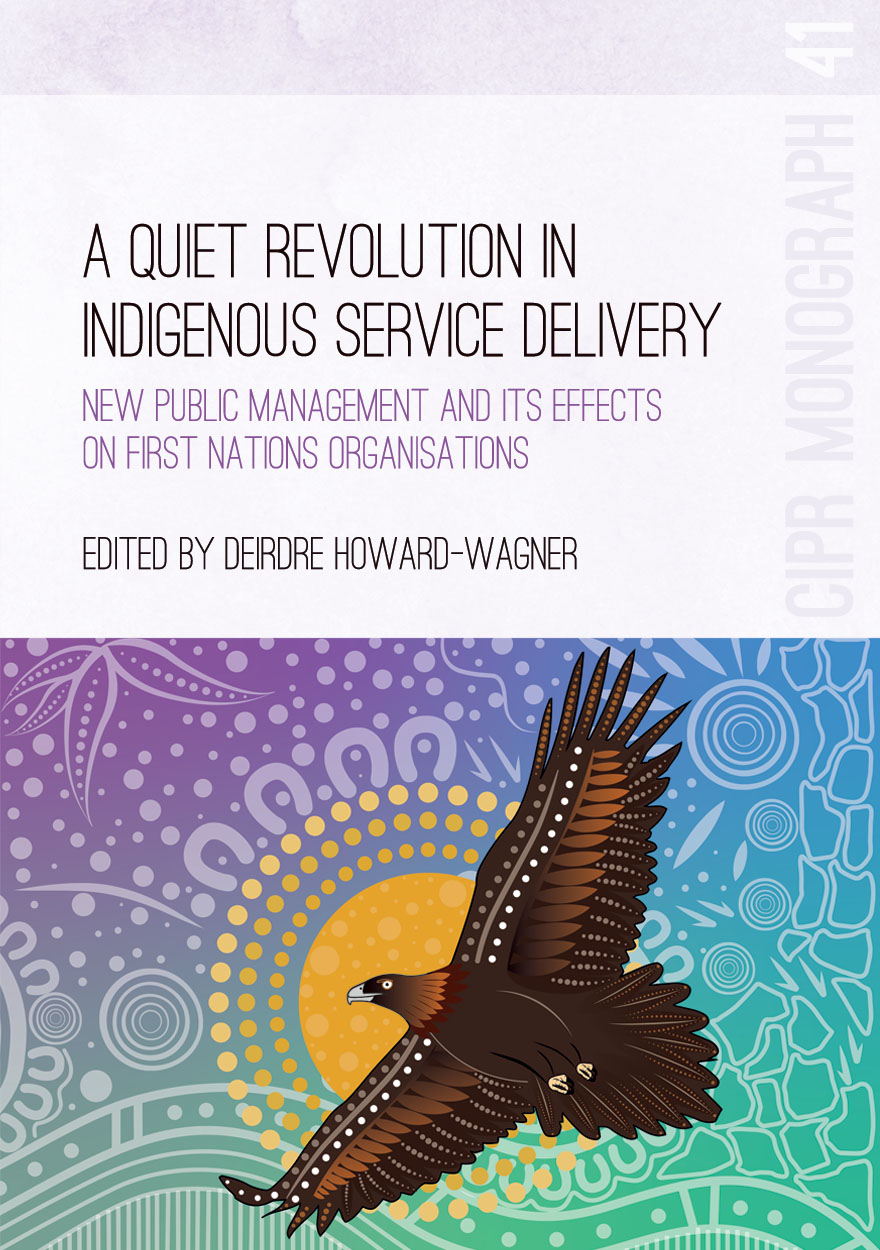
A Quiet Revolution in Indigenous Service Delivery »
New Public Management and its Effects on First Nations Organisations
Edited by: Deirdre Howard-Wagner
Publication date: May 2025
The government Indigenous service market that is now well entrenched in the public administration system has operated to marginalise First Nations people and First Nations organisations, who have had very little say, if any, over the last 20 years, about how government services are designed to meet their needs.
The chapters in this volume comprehensively describe and illustrate how the government Indigenous market, and the Indigenous service delivery system created around that market, have failed and why system change is needed.
The book offers the expertise of individual community-controlled First Nations organisations operating in urban settings in NSW, which variously operate as social enterprises, businesses, community development organisations, social service providers, representatives and advocacy organisations.
Concentrating on the experiences of individual First Nations organisations allows us to examine the complex, layered Indigenous service system as a multi-jurisdictional phenomenon on the ground in an urban context.

‘I buy this piece of ground here’ »
An Italian market-gardener community in Adelaide, 1920s–1970s
Authored by: Madeleine Regan
Publication date: May 2025
‘I buy this piece of ground here’ is a group biography that examines the lives and work of a cohort of Italian migrant families from the Veneto region who arrived in Australia in the 1920s and formed a new community and identity as market gardeners in outer suburban Adelaide.
This book investigates the settlement processes in a period of Australian migration history often overlooked in favour of post–World War II studies of mass migration and multiculturalism. It considers the impacts of the Depression, fascism, World War II, the White Australia environment that excluded southern Europeans and, ultimately, the suburbanisation that overtook their community.
Drawing on 65 oral histories with sons and daughters of the first generation, archival and published records, the narrative reveals what it felt like to work market gardens that became economic and emotional anchors for a new community. The first generation raised families, worked and bought the land, planted vegetables, bartered for glasshouses, sold produce at market, celebrated in packing sheds and established a stable, resilient community between the wars.
The Veneto families developed successful commercial market gardens and created a self-contained village or paese in a small area west of Adelaide. Withstanding marginalisation, the market gardeners lived and worked together in a small community, prospered and created an economy, a sense of belonging and a future for their children.
‘A formidably detailed piece of research and the product of a most fruitful community collaboration.’
—Frank Bongiorno AM, Professor of History, ANU
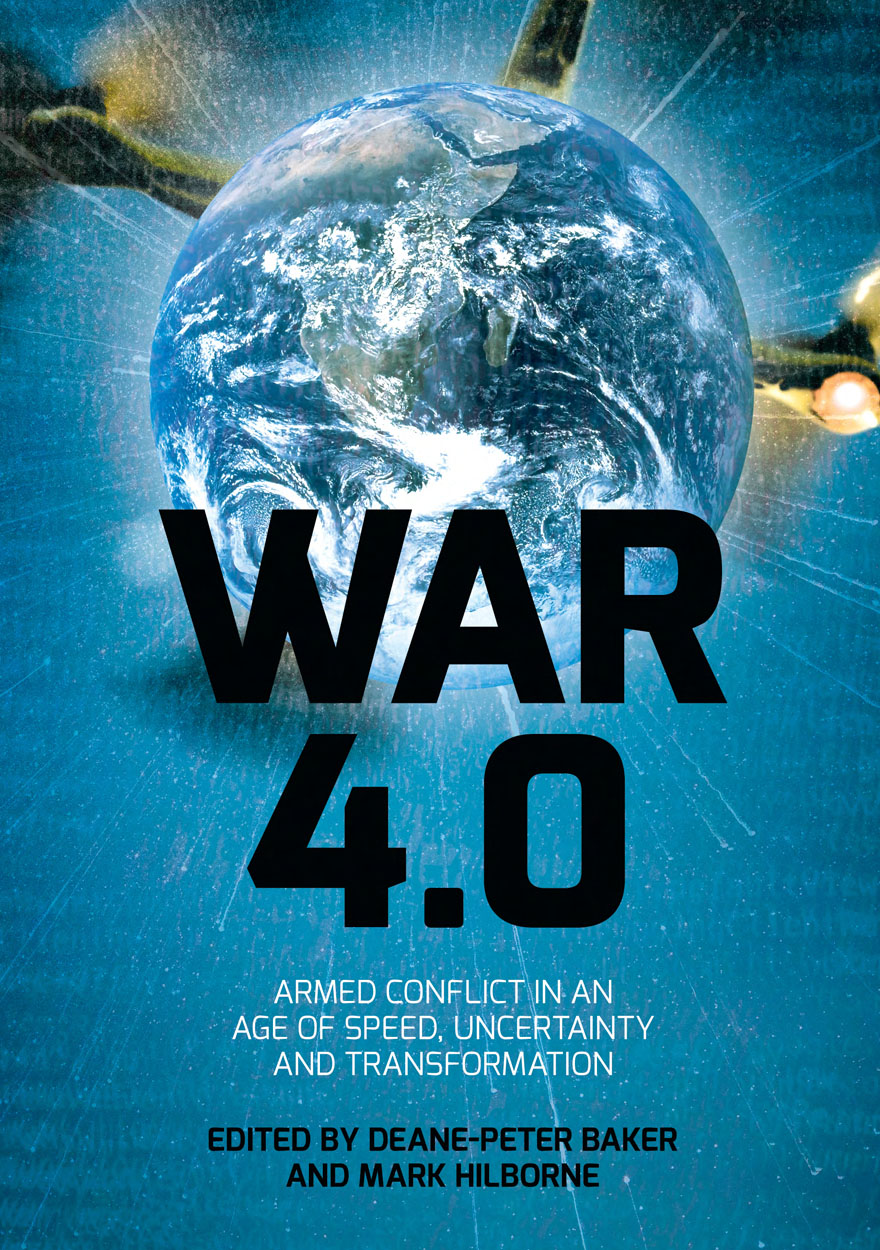
War 4.0 »
Armed Conflict in an Age of Speed, Uncertainty and Transformation
Edited by: Deane-Peter Baker, Mark Hilborne
Publication date: April 2025
This volume explores the impact of technology and new domains on future warfare. It identifies several themes, and highlights the increasing complexity of the security environment and the uncertainty of future war. The sense of time and speed has been, and is being, compressed by developments in quantum technologies, the cyber domain, artificial intelligence, the increased capabilities of sensors and data collection, as well as new propulsion technologies such as hypersonic designs. Concepts regarding the shape and extent of the battlefield are challenged by the notion of hybrid war and sub-threshold tactics, as well as new domains in which competition is increasing, such as space. Further challenging the shape of the battlefield is the increased development of remote and autonomous warfare. Commercial developments will affect how military production is owned and managed, and how military forces are composed.
Thus, a confluence of new technologies exists, combining to create the potential of fundamental transformation at many levels. This wave of technological change has been called the Fourth Industrial Revolution (4IR), characterised by an exponential rather than a linear rate of change, generated by convergence and complementarity of emerging technology domains. These may not affect the fundamental Clausewitzian nature of war, but they will likely affect its character. From a military perspective, the key will be the impact on the speed of operations and on the shape of the operational domain—the factors of time and space. The combination of these shifts will increasingly affect the perception of states and the degree of certainty in approaching and engaging in conflict.

Because COVID … »
Pandemic Responses, Rationales and Ruses
Edited by: Shirley Leitch, Sally Wheeler
Publication date: April 2025
The norms of everyday life were often cast aside during the pandemic years. States shut their borders, mothballed their economies, and locked down their cities. Individuals put family life, career goals, travel plans – even medical treatments – on hold. In Australia, a Government elected on a platform of neo-libertarian freedom and debt reduction, spent like Keynesians while curtailing even basic freedoms. Some citizens protested but most accepted curfews, mask mandates and the shuttering of schools and workplaces in exchange for the promise of safety.
Across every sphere of life, ‘Because Covid’ became an accepted shorthand, serving as both a response and rationale for previously unthinkable actions. Yet, it is always a mistake to take such things at face value.
Contributors to this book look beyond the rhetoric of Australia’s COVID-19 responses to consider where the pandemic has taken us as a nation. We examine economic policy, bioethics, freedom of speech, freedom of movement, global supply chains, public value science, violence against women, the experiences of Indigenous communities, news media practices, the arts sector, historical precedents, and more. What can we learn about managing future risks? What are the consequences, intended or not, of particular policy interventions? Are there new opportunities as normalisation kicks in? Our goal is to offer broad-ranging insights into the Australian experience at the very time the nation is beginning to learn how to live with COVID-19.
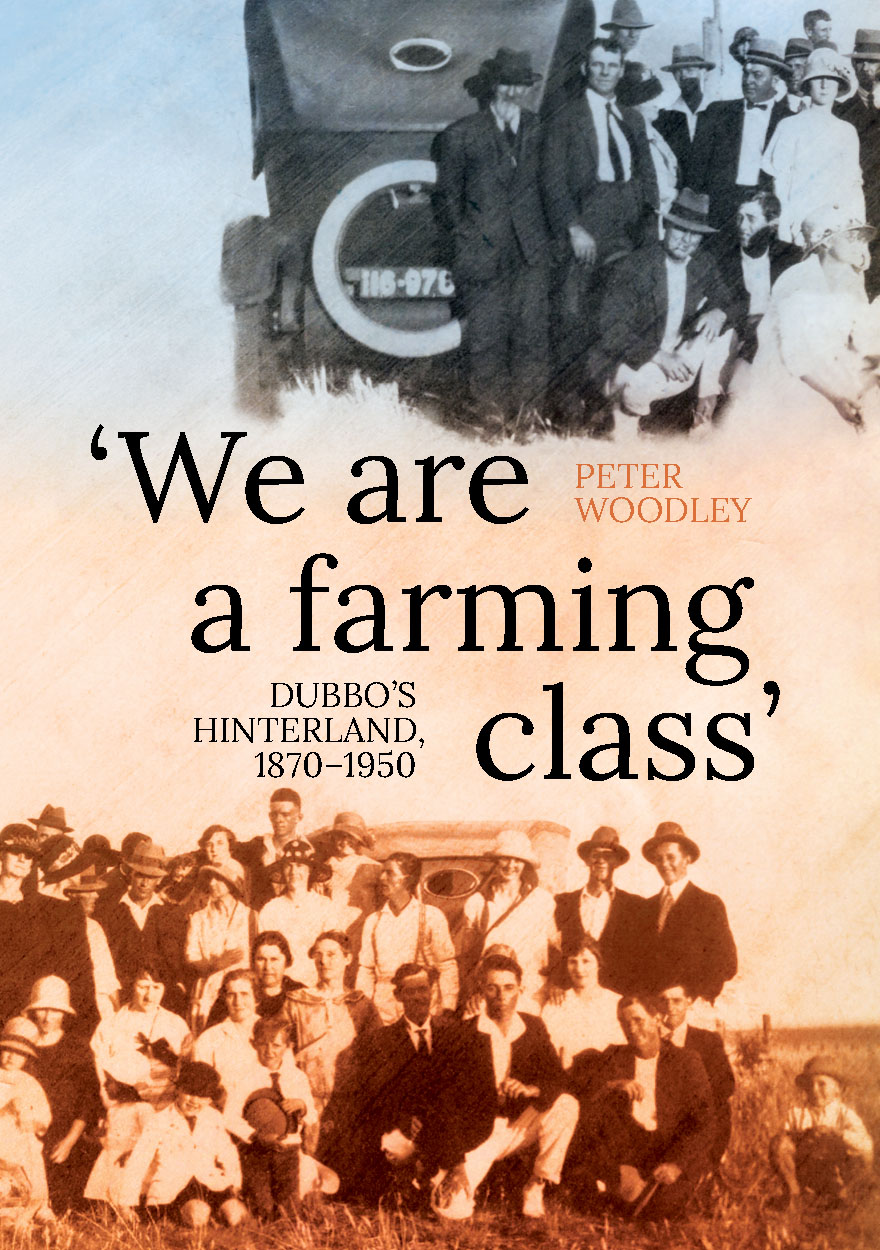
‘We are a farming class’ »
Dubbo’s hinterland, 1870–1950
Authored by: Peter Woodley
Publication date: April 2025
Notions of an arcadian farming life permeate settler-Australian understandings of themselves and their nation. Qualities of hard work, perseverance, resourcefulness, and a steady devotion to family and community—the historian John Hirst’s Pioneer Legend—are idealised in this nation. But the people from whom the legend is derived have rarely been studied in depth. They are more the stuff of myth and fond imagining than of concerted examination. To what extent is the legend built on lived experience? How have farming people thought of themselves and their contribution to a wider national mythos? ‘We are a farming class’ examines the lives of people in the farmlands surrounding Dubbo in the New South Wales central west between the 1870s and the 1950s, from free selection and the establishment of agriculture to the dawning of postwar prosperity and change. What emerges is a closely documented, ethnographically rich portrait of a way of life and culture at once distinctive and surprising, recognisable and unknown.

Dregs »
Love and Monsters in Small Town New Zealand
Authored by: Laura McLauchlan
Publication date: March 2025
Girls who join dog packs, boys who gain strength from trees, men who love bodies with nobody in them: Dregs is a collection of tenderly monstrous love stories, set in a shadowy small town of the same name. Based in South Canterbury, New Zealand, these lovingly disturbing fictions welcome the strange and other-worldly, while keeping an ethnographic eye trained on the classed, religious, gendered, racialised and species-based forces shaping this rural region of New Zealand's South Island.
While at times grotesque, these darkly loving, richly illustrated tales offer new avenues for ethnographic research and shed new light on the region, giving voice and form to unspoken aspects of this antipodean rural idyll. Shaped by a deep respect for the monstrous feminine, regardless of the gender of the bodies in which such forces appear, Dregs: Love and Monsters in Small Town New Zealand is a product of both an anthropological sensibility and a trust that naming and finding ways to live well with our monsters is a vital aspect of living well in our times.
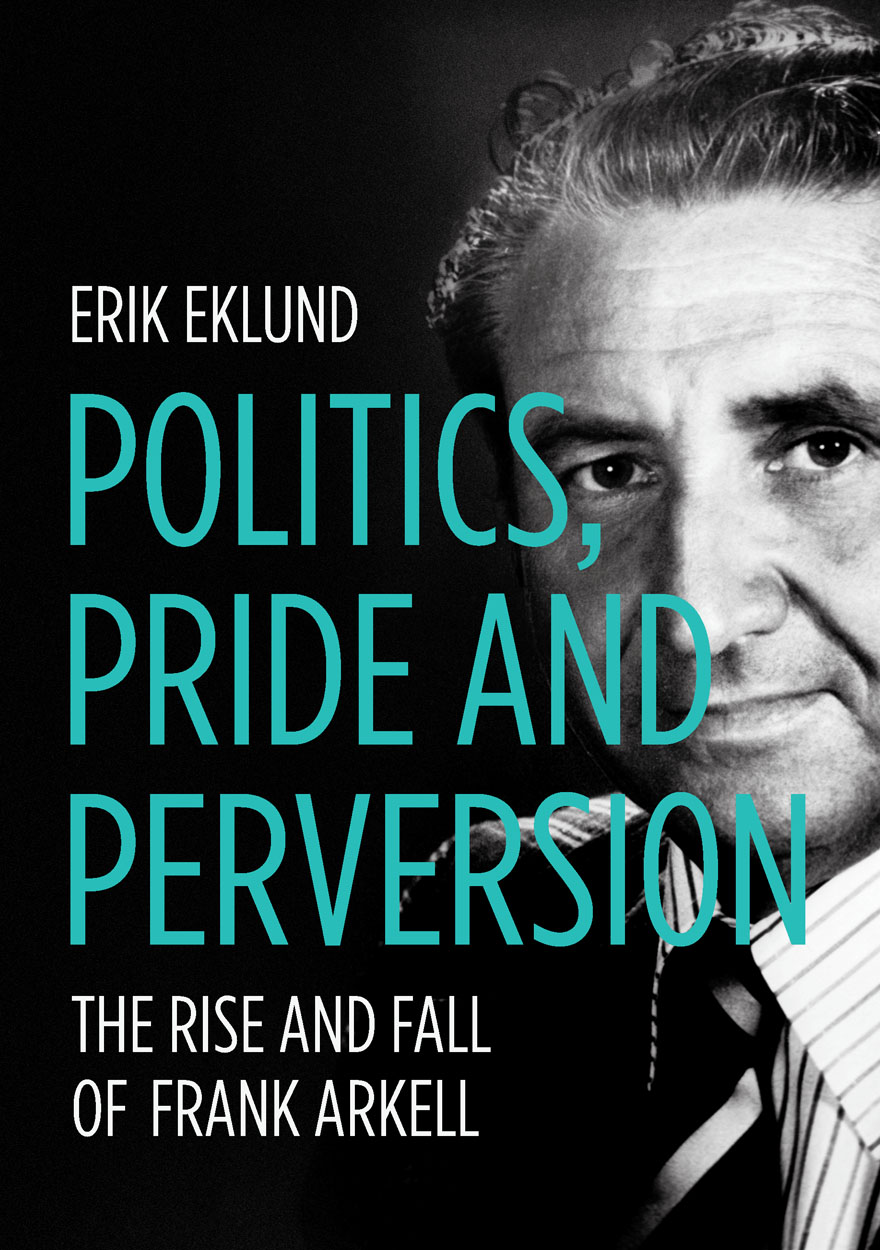
Politics, Pride and Perversion »
The Rise and Fall of Frank Arkell
Authored by: Erik Eklund
Publication date: March 2025
Frank Arkell (1929–1998) was the most successful politician of his generation; an Independent who served as Wollongong’s Lord Mayor (1974–1991) and state member (1984–1991). Arkell dominated Wollongong public life with unstoppable energy, eccentric flair, and a single-minded determination to support the city through economic restructuring. Despite his popularity, at the edges of public consciousness there was growing disquiet over Arkell’s private life …
‘A compelling biography … Eklund provides a nuanced exploration of Arkell’s relentless efforts to transform Wollongong from a ‘steel city’ to the ‘Leisure Coast’, as well as his connections to an extensive paedophile network exposed during the 1997 Wood Royal Commission …’
— Associate Professor Jayne Persian, University of Southern Queensland
‘Eklund discloses the tragic consequences of unbridled male lust, deep social inequality and unaccountable class power … we have here a shocking story of sexual abuse and official corruption that brought untold suffering, political disgrace and, in the end, a brutal murder.’
— Professor Frank Bongiorno AM, author of Dreamers and Schemers: The Political History of Australia
Shortlisted, NSW History Awards, NSW Community and Regional History Prize, 2025
Longlisted, The Australian Political Book of the Year, 2025



